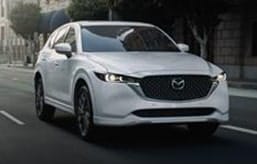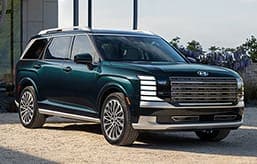- Report says microchip shortage is forcing GM to cancel or restrict the availability of popular comfort features on its 2022 vehicles.
- Changes primarily impact SUVs and trucks, which is not surprising since that’s pretty much all GM builds anymore.
- Automaker may find a way to add them back after chip shortage eases, but don’t count on it.
Chip Shortage Forces GM to Drop Popular Features Like Heated Seats
Just in time for winter, features including heated seats will be unavailable or sharply restricted on several 2022 GM vehicles.
Why are microchips in short supply?
Modern vehicles run on microchips, which control onboard electronics ranging from engine management computers to infotainment and safety systems. When the COVID-19 pandemic struck, automakers closed down factories and people stayed home, fueling demand for consumer electronics.
When economic activity resumed, sooner and stronger than expected, automakers found themselves competing for microchips with companies that use them to build smartphones, laptops, computer components, gaming consoles and home appliances. Economic sanctions, microchip plant closures and other factors also restricted the availability of the chips. AutoForecast Solutions estimates the market is short of about 10 million new vehicles as a result.
If you’ve driven by a Buick, Cadillac, Chevrolet or GMC dealership lately, you can see the evidence of this problem. Stock is in extremely short supply. To help ease the production backlog, General Motors is now cutting some popular features while restoring others.
What features are on the chopping block?
If you live where it’s cold and you’re planning to buy a new 2022 SUV or truck from GM, shop now. According to a report in Automotive News, GM recently sent its dealers a letter explaining that on November 15 it would stop installing heated seats in several models. Ventilated seats are also off the table and, starting November 22, heated steering wheels won’t be as widely available.
Edmunds reached out to GM for comment on the report:
"This measure is temporary until chip supplies improve, and every effort was made to protect as much as possible. That is why only certain trims are impacted. Our teams are also exploring ways to potentially retrofit vehicles with some of these features once parts become available. At the same time, it is important to highlight that some features we had previously removed on certain 2022 models — such as climate control digital temperature displays, Side Blind Zone Alert and Super Cruise driver-assist technology — are now available again due to a better flow of semiconductors in our supply chain. It remains a fluid situation."
This decision could not have been an easy one. Market research firm AutoPacific says that more consumers indicate they want heated seats in their next vehicle than any other feature. If you’ve grown up in a northern climate, you can easily understand why.
However, the news isn’t all doom and gloom. GM is offering buyers of affected vehicles a credit of $150 to $500, according to the report, which is more than enough to pay for some flannel-lined jeans and new gloves.
Which makes and models are affected?
Apparently, if you can pay you can still play, at least to some extent. The Automotive News report did not mention the Chevrolet Corvette, for example, which will continue to toast owners’ buns when the weather outside is frightful.
Otherwise, models losing heated and ventilated seats include but are not limited to:
- Chevrolet: Blazer, Colorado, Equinox, Silverado, Trailblazer and Traverse
- GMC: Acadia, Canyon, Sierra and Terrain
Additionally, the Chevy Tahoe, Suburban and GMC Yukon models will no longer offer heated steering wheels until the microchip shortage improves.
Can GM add canceled features due to the chip shortage to the vehicles later on?
As GM told Edmunds in its statement, the company is exploring the feasibility of adding these canceled features to the affected vehicles at some time in the future. However, the automaker is making no promises.
Edmunds says
The cascading chain of events sparked by the global pandemic continues to wreak havoc on the automotive industry. GM is doing its best to mitigate the impact of the microchip shortage, but it cannot avoid making hard choices about production and feature content. If your heart is set on one of the affected models from Chevrolet or GMC, have patience, grasshopper. This, too, shall pass.



 by
by